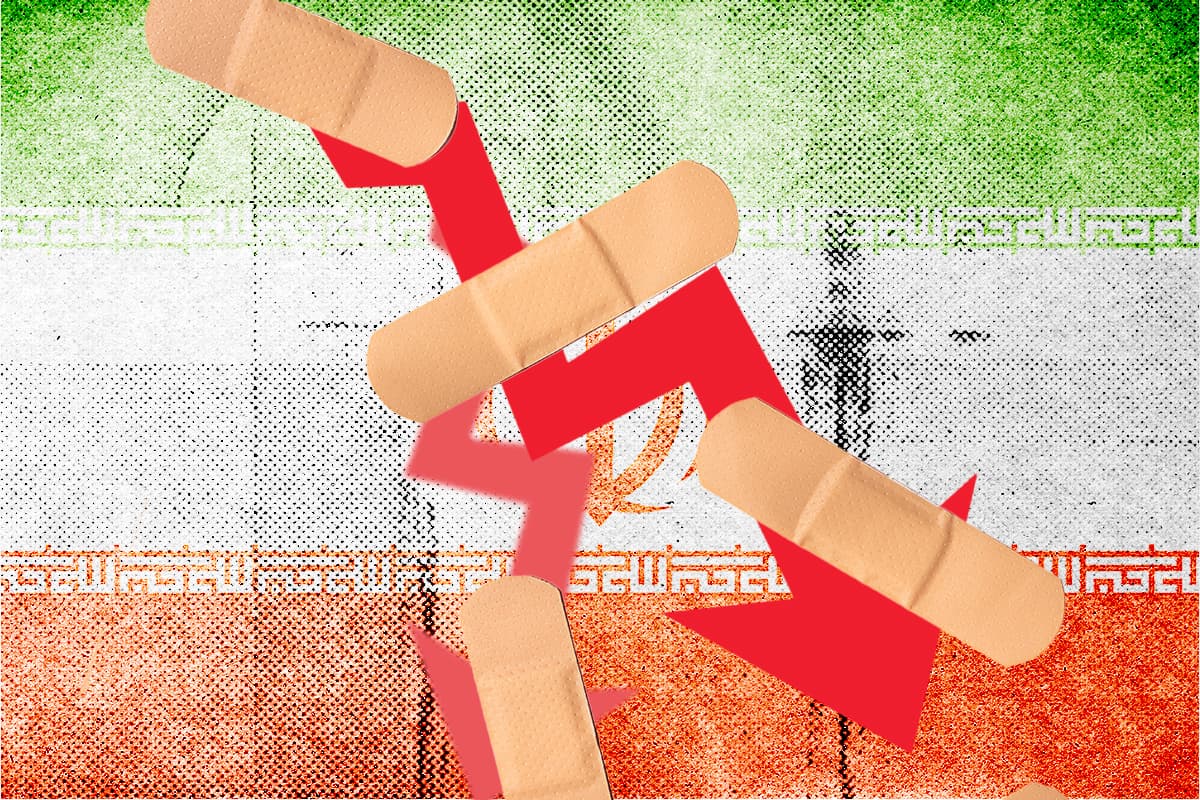To many observers it is apparent that the primary objective of the Islamic Republic of Iran today is survival in the face of numerous challenges, but a Nezam insider says the tendency towards repression and intimidation goes back a quarter century. This comes from Ali Rabi’i, the official who served in the Rouhani administration first as minister of labor and subsequently as the spokesman for the administration. Considering that Rabi’i also has a background in intelligence and security matters beginning in the late 1980s and as an advisor to former president Mohammad Khatami in the 1990s, his observations about the current state of the Nezam and the mindset governing its policies are telling.
Speaking at a symposium on the effects of economic and social policy, Rabi’i bemoaned the focus of the Nezam on survival rather than development—something he implicitly views as a lost opportunity. He traces the survivalist mindset to the arrival of the Internet in Iran in the late 1990s and early 2000s, oddly at a time when the smiling Khatami was beguiling the nation and the world with his “dialogue of civilizations.” (Meanwhile, Iran was pursuing a nuclear program in secret.) Rabi’i perhaps fails to see that those early days of the Internet followed a surge in the brutal campaign of elimination of dissidents by Iran’s intelligence and security apparatus, with which he was associated under the operational name Ebad. In fact, the paranoia of the Islamic Republic, driven largely by security concerns, goes back much further to the early days of the revolution, when Khomeini loyalists overran the “den of spies” that was the U.S. embassy in Tehran, even as Khomeini himself encouraged children to rat on parents who were disloyal to the Islamic Republic. Rabi’i sidesteps these uncomfortable truths as he bemoans Iran’s loss of opportunities for development, pointing to the Nezam’s harsh response these days to defiance of hijab as another example of the survivalist instinct. And yet a year earlier he had acknowledged a measure of what seemed like personal culpability for the Islamic Republic’s turn towards repression of dissent at a time when it was far milder than today. In 2018, Rabi’i had sat in the presence of senior cleric Abdollah Javadi-Amoli, who had warned that if the Iranian people rose up in revolt, they would throw Iran’s political and religious leaders into the sea. Today, the cleric worries about the loss of religious faith due to bad economic conditions. Mohammad-Javad Azari-Jahromi, another former Rouhani official, sees a potentially explosive situation, warning that repression in such matters as hijab enforcement combined with the country’s poor economic condition is akin to striking a match near a powder keg.
The paranoid survivalist mindset that Rabi’i decries is fully on display today with the disproportionately harsh death sentence handed down to rapper Tumaj Salehi merely for promoting a message of dissent and resistance in his music, particularly in connection with the Woman, Life, Freedom movement. However, given how much the Internet has changed the speed with which such news spreads and provokes both domestic and international outrage, it seems authorities are reconsidering. Even the hardline Abdollah Ganji, who never saw a harsh policy he did not approve of, declared that Salehi would “definitely” not be executed. Instead, rather than noting the stress to the accused and his family from the situation, Ganji was worried about the costs such a sentence imposed on the Nezam. Mas’ud Setayeshi, the spokesman of the Judiciary, was so unnecessarily obtuse and verbose in his comment on Salehi’s case that it was unclear which way the Judiciary itself was leaning. Another case causing concern is that of Quran scholar Sediqeh Vasmaqi, who suffers from a heart condition and is in need of medical care, but is instead languishing in jail for taking off her headscarf in support of the Mahsa Amini protests.







